You have no items in your shopping cart.
How to (and how not to) lock your bike
If you’ve ever had your bike stolen, then you know the frustration of having to live without a bike while dealing with the insurance. Luckily some simple precautions and a properly used quality lock can keep these mishaps away.
Read on for our tips on how to do just that!
The bike used as an example here is a Pelago Capri fitted with a Commuter Front Rack, our favourite accessory for carrying an U-lock
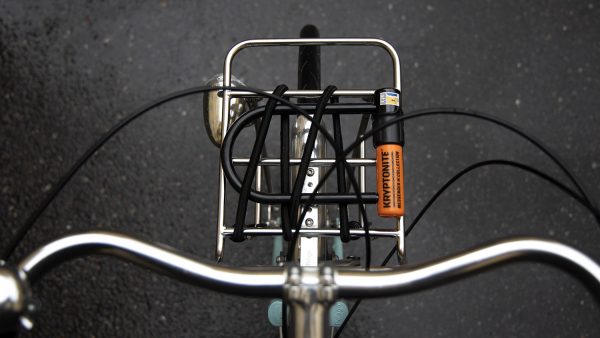
Firstly, it’s important to remember that no lock is unbreakable for someone with enough time, tools and motivation. The trick is to lock your bike so that it is as inconvenient as possible to even try to steal in the time and place it is locked in.
1. Always lock from frame to a solid object
Even the best locks are no use if your bike can conveniently carried away or thrown into a back of a van. This is why it’s crucial to always secure the frame of your bike to an solid object. Never lock your bike using only the wheel or any other component since they can be easily unbolted with basic tools.
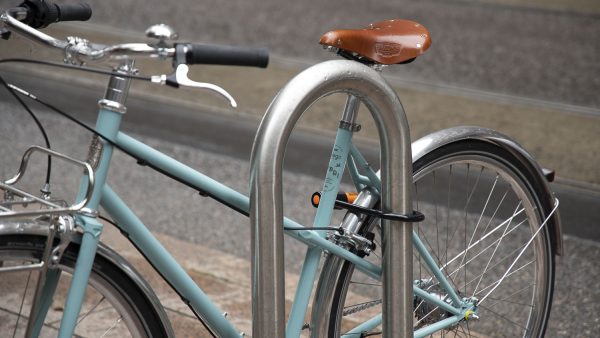
The best bike stands are the ones fixed to the ground. Always try to secure both the frame and the rear wheel to the stand like shown above. This way the lock fits snuggly and leaves little room for any cutting tools.
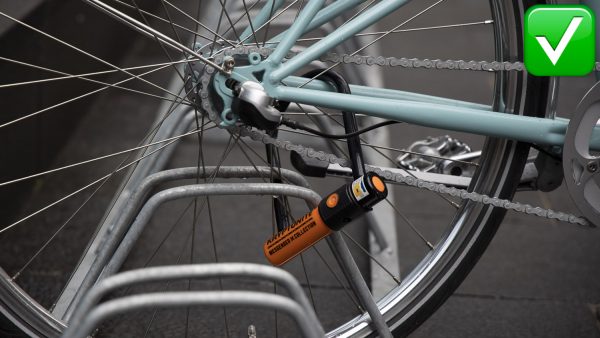
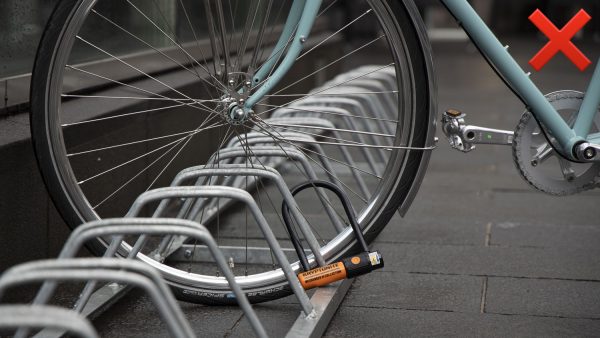
Even the old school bike racks can be reasonably safe if you park your bike rear-first and secure it from the frame (like the first image). Never lock your bike like the one on the second photo. Even though the front wheel is secured to the stand, the rest of the bike could be carried away by cutting a few spokes or unbolting the wheel. This results to the sad and lonely bike wheels locked to bike stands that can be spotted around almost any city.
Purpose built bike stands are great but not always available. Luckily there are usually many fences, light poles or other fixtures around that work just as well. Keep in mind that the object you’re about to lock your bike to should be at least as sturdy as the lock itself.
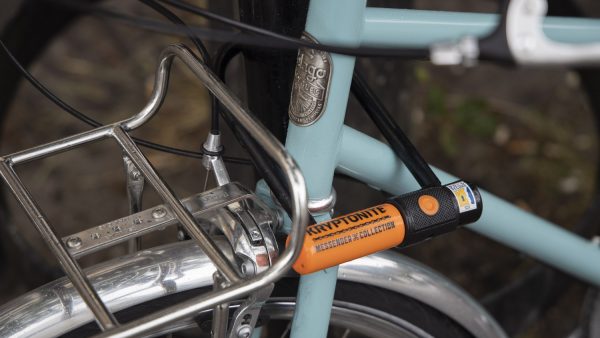
The bike above is safely locked to a steel fence. Make sure the area where you lock the bike is well lit and if possible, has high foot traffic.
2. Always use an U-lock
There’s a huge variety of different lock options available to choose from. In our opinion nothing compares to the good old U-lock. Heavy and annoying as they are, they are also the safest. They are the only type of lock we recommend to be used as the main lock with our bikes.
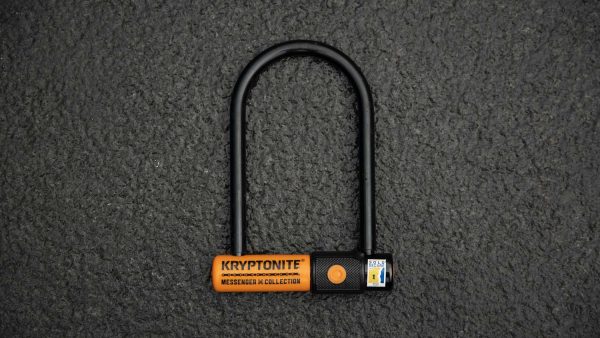
The superiority of U-locks has a lot to do with their clunkiness. Cutting through the thick steel shackle of a quality U-lock requires heavy tools that are sure to gather some attention if used in public. Our U-lock brand of choice is Kryptonite, whose locks we’ve been recommending since we first began in the bike business. There are also other options to choose from but we recommend staying with big brand names such as Kryptonite, Abus and OnGuard.
The best U-locks are double bolted, meaning that both ends of the U-shaped steel shackle are secured in place by a locking mechanism. These double bolted locks need to be cut twice before they’ll budge.
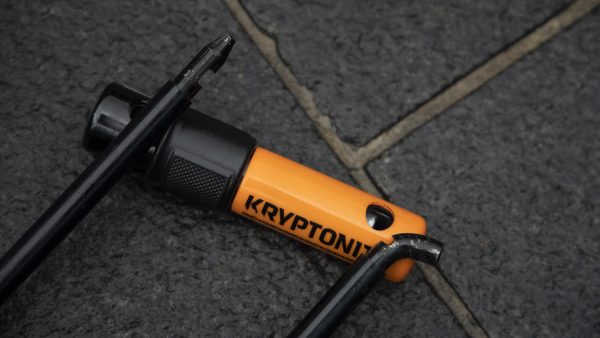
3. Use cables for extra security
An correctly used U-lock is safe enough by its own for most situations (at least in Helsinki, your city might differ). Additional cables are a great help if you have to leave your bike unattended for longer periods or just want to have some extra security.
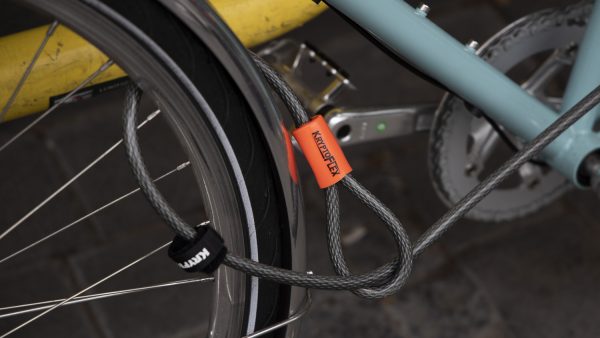
The extra cables (such as the Kryptoflex 410) are convenient for securing the wheels or other components of your bike. We don’t recommend using the cables as a way of securing your bike to a solid object. Even though they are of high quality, the cables are still relatively easy prey for an motivated individual with bolt cutters.
4. Keep a note of your frame number
The unique frame number is like a registration plate for your bicycle that is usually needed to make an insurance claim. It is also your best shot of getting your bike back if found by the authorities. Write it down or snap a photo of it and store it in a safe place!
With Pelago Bicycles, the frame number can be found in the owners manual and underneath/on top of the bottom bracket.






